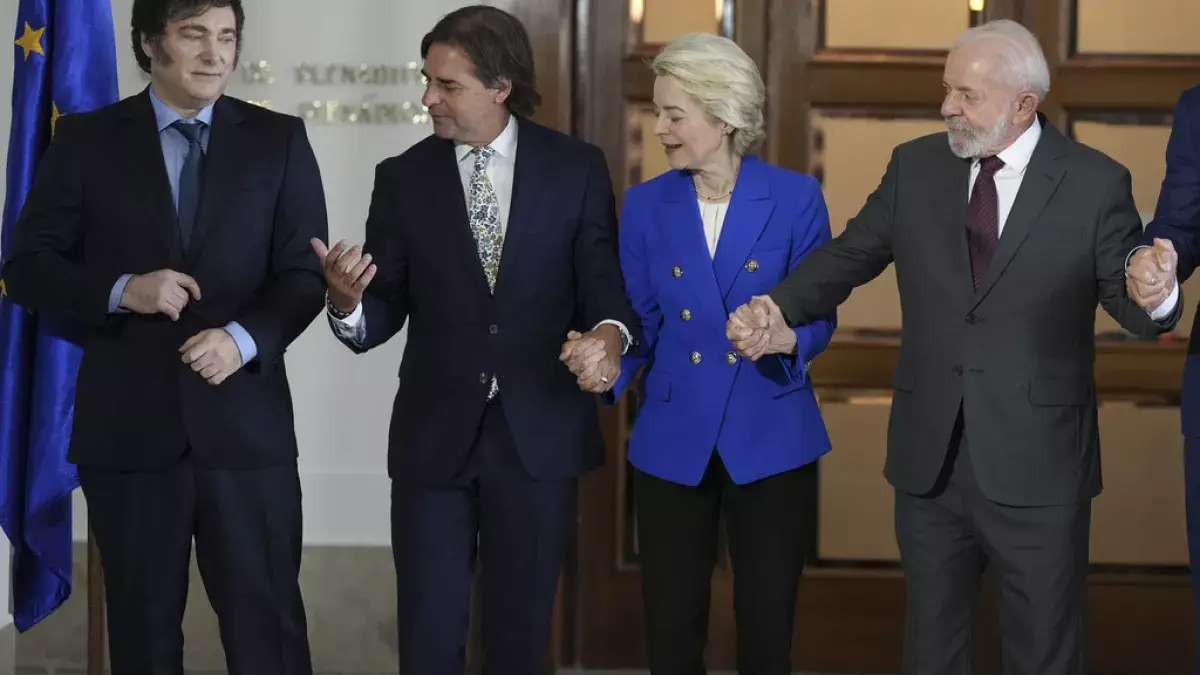
European Commission says yes to Mercosur
Negotiations for a cooperation agreement with Brazil, Argentina, Paraguay and Uruguay have been concluded today

December 6, 2024 will probably become a historic date in the agendas of European agri-food policy. Today, after years of negotiations, the EU and Mercosur have reached a political agreement on an innovative partnership. According to the official Brussels communiqué issued a short while ago, "European Commission President Ursula von der Leyen and her counterparts from four Mercosur countries, namely the Brazilian president Luiz Inácio Lula da Silva, the Argentine president Javier Milei, the Paraguayan president, Santiago Peña, and the Uruguayan president, Luis Alberto Lacalle Pou, concluded negotiations for a cooperation agreement with Mercosur.
The next steps
The proposed EU-Mercosur agreement consists of a political and cooperation pillar and a trade pillar. The end of the negotiations is the first step in the process of concluding the agreement: official documents will be published online in the next few days. After the final legal check by both parties, the text will be in all official EU languages and then presented to the Council and Parliament.
The president of the European Commission, Ursula von der Leyen, said: "This is a win-win deal that will bring significant benefits to consumers and businesses on both sides. We are focused on fairness and mutual benefit. We have listened to our farmers' concerns and acted accordingly. This agreement includes strong safeguards to protect your livelihoods. The EU-Mercosur agreement is the largest ever agreement on the protection of food and beverages in the Uw. More than 350 European products are now protected by a geographical indication. In addition, our European health and food standards remain untouchable. Mercosur exporters will have to strictly adhere to these standards in order to access the EU market. This is the reality of an agreement that will save EU companies €4 billion in export duties per year".
This agreement, the Brussels note stresses, comes at a "crucial moment for both parties and offers the opportunity to obtain important mutual benefits through the strengthening of geopolitical, economic, sustainability and security cooperation".
The agreement, according to the EU Commission:
- strengthen strategic business and political links between reliable, like-minded partners;
- it will support economic growth, increase competitiveness and strengthen the resilience of both sides by opening up opportunities for trade and investment and ensuring sustainable access to and processing of raw materials;
- represents an important milestone in the fight against climate change with strong, specific and measurable commitments to stop deforestation;
- takes into account the interests of all Europeans, including the very important EU agricultural sector;
- it will help to increase the EU’s agri-food exports, while protecting sensitive sectors;
- it complies with EU standards on animal health and food safety, preventing unsafe products from entering our market.
This "landmark agreement", adds the Brussels note:
- it ensures and diversifies our supply chains;
- create new opportunities for all types of businesses by eliminating the often prohibitive tariffs on EU exports to Mercosur;
- will save EU businesses 4 billion Euros in duties per year;
- will ensure trade preferences in key zero-emission sectors of industry, such as renewable energy technologies and low carbon fuels;
- it will help small and medium-sized enterprises to export more by reducing red tape;
- ensure an efficient, reliable and sustainable flow of key raw materials for the global green transition.
The agreement, according to the EU Commission, takes the sustainability commitments of the EU and Mercosur to a higher level:
- making the Paris Agreement an essential element of the EU-Mercosur relationship;
- through concrete commitments to halt deforestation;
- with clear and enforceable commitments to sustainable development, including workers' rights and the sustainable management and conservation of forests;
- with an active role for civil society organisations to monitor the implementation of the agreement, including human rights or environmental concerns.
In addition, 1.8 billion Euros of EU support will facilitate the green and digital transition in Mercosur countries under the Global Gateway.
EFA News - European Food Agency